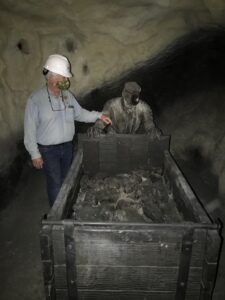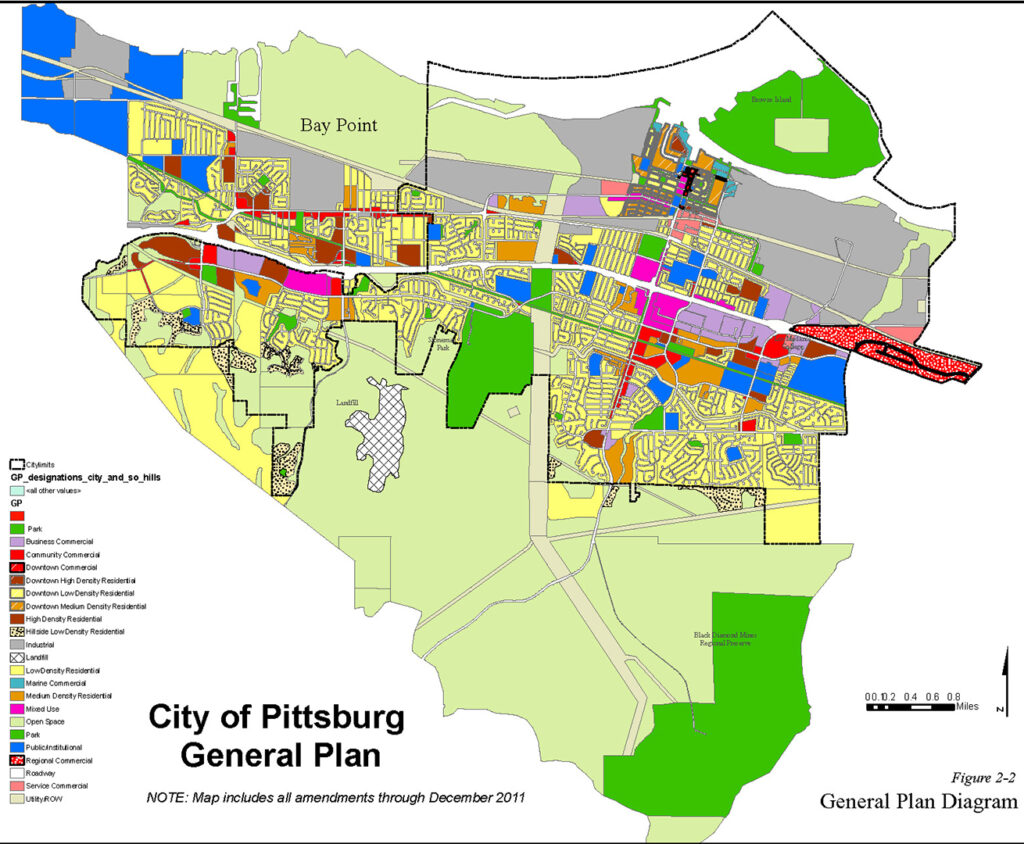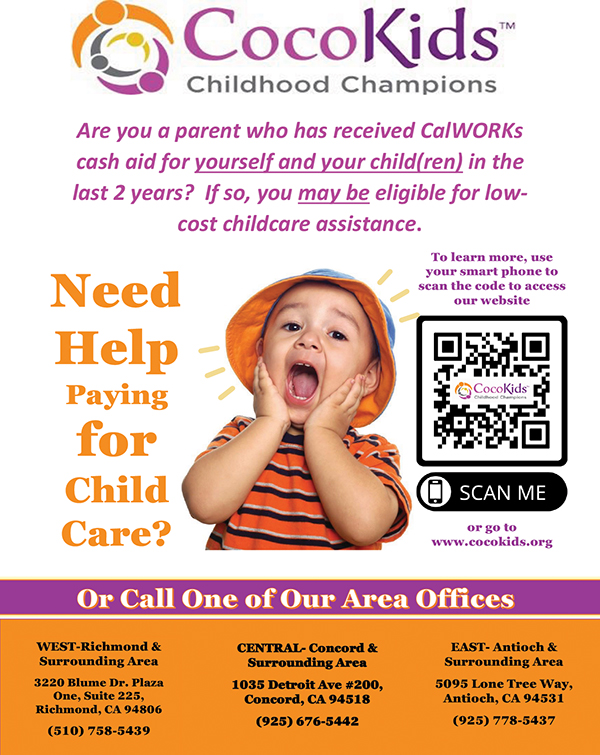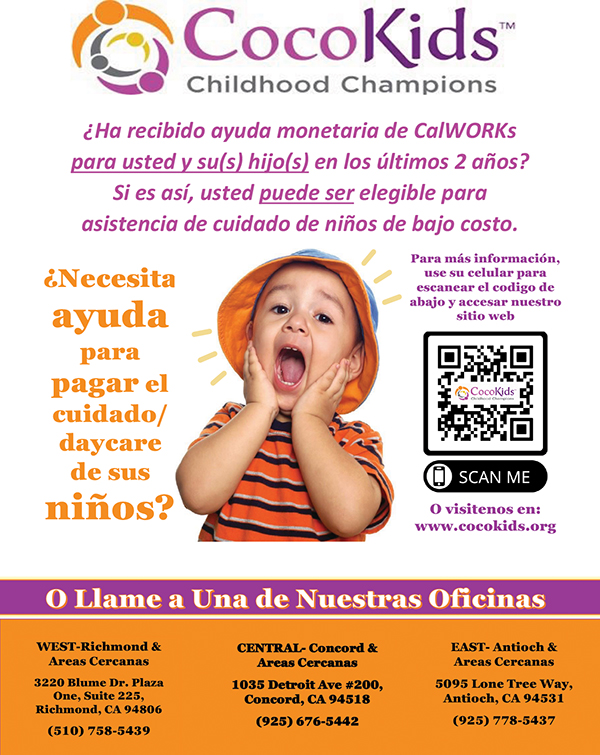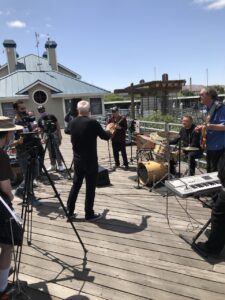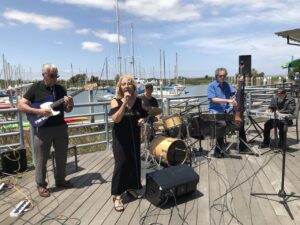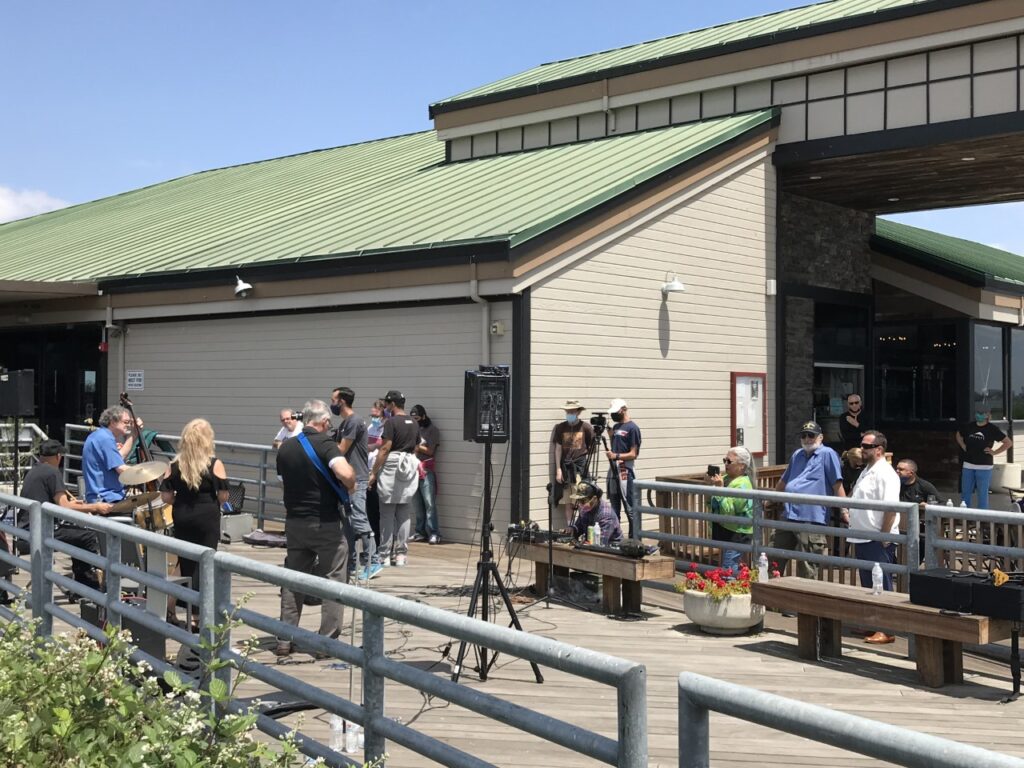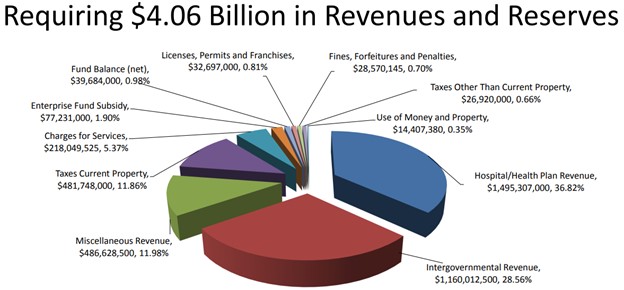Contra Costa County Officer Involved Incident Protocol enacted
By Pittsburg Police Department
 On Thursday, May 20, 2021 at 9:21 P.M, Pittsburg Police Officers were called to an apartment complex in the 2300 block of Loveridge Road regarding a man holding a handgun, banging on the front door of an apartment. The man was reported to be the ex-boyfriend of the resident. When officers arrived, they contacted the man on a stairway leading to the second-floor apartment of his ex-girlfriend. Officers asked the man to walk down the stairs and speak with them, but he ignored their commands and began walking back up the stairs away from the officers. Officers followed him up the stairs and continued to ask him to stop and not walk away.
On Thursday, May 20, 2021 at 9:21 P.M, Pittsburg Police Officers were called to an apartment complex in the 2300 block of Loveridge Road regarding a man holding a handgun, banging on the front door of an apartment. The man was reported to be the ex-boyfriend of the resident. When officers arrived, they contacted the man on a stairway leading to the second-floor apartment of his ex-girlfriend. Officers asked the man to walk down the stairs and speak with them, but he ignored their commands and began walking back up the stairs away from the officers. Officers followed him up the stairs and continued to ask him to stop and not walk away.
As the man reached the top of the stairs, officers observed he was in possession of a handgun in his right hand. Officers directed the man to get on the ground and drop the handgun. The man turned towards the officers and pointed the handgun directly at them. Two officers then used their service weapon, striking the man. The man immediately fell to the ground, still holding the handgun.
For several minutes following the shooting, officers continued speaking with the man, asking him to drop the handgun so they could get him medical attention. The man did not respond to officer’s request. Eventually, officers were able to detain the man and immediately started life saving measures until paramedics arrived. Unfortunately, the man died at the scene due to his injuries. The man was 31 years old. A handgun was recovered from the man’s possession. We are waiting to release his name due to the ongoing investigation.
The Contra Costa County Officer Involved Incident Protocol has been enacted and the Contra Costa County District Attorney’s Office will be completing an independent investigation into this incident. The Pittsburg Police Department’s independent outside investigator is also conducting an independent investigation of the incident pursuant to department policy. We will be releasing body-cam footage within the coming days of the incident, along with the officers’ names. This is still an active investigation and additional information will be released in the coming days.
Read More
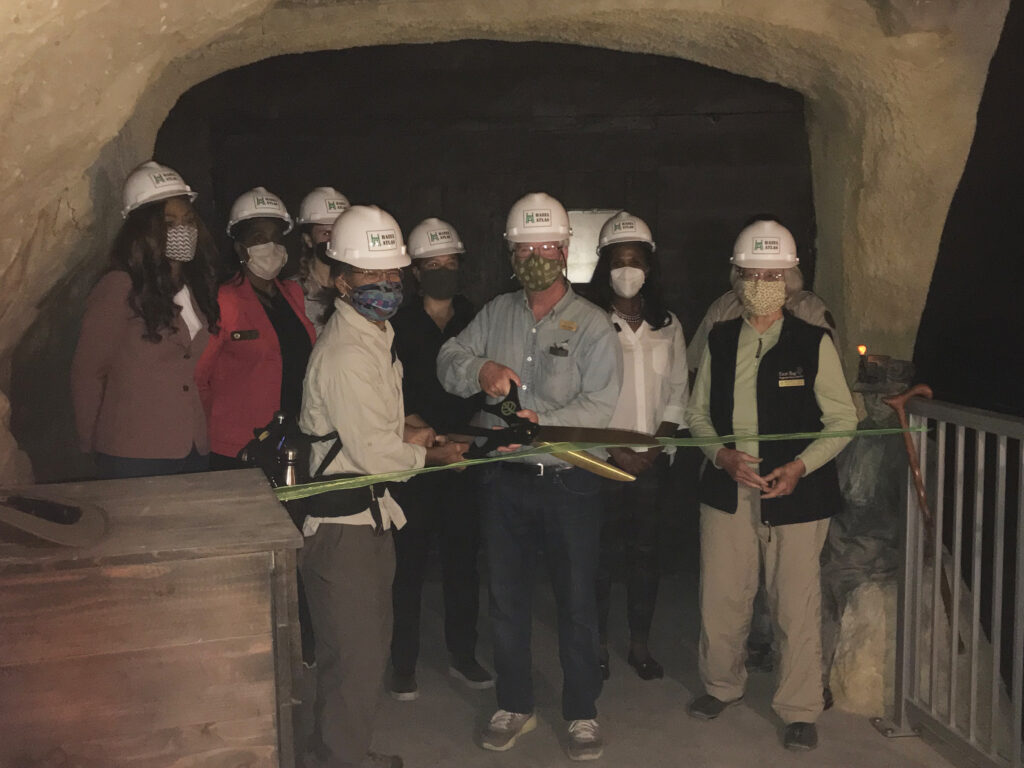
Parks District Board V.P. Colin Coffey (center) and President Dee Rosario (left) prepare to cut the ribbon for the new coal mine exhibit. They were joined by Pittsburg Councilwoman Shanelle Scales-Preston (far left) G.M. Sabrina Landreth (between Rosario and Coffey), Antioch Mayor Pro Tem Monica Wilson, Director Beverly Lane and representatives of Congressman Mark DeSaulnier and Assemblyman Tim Grayson.
Opens Saturday for weekend tours
By Allen Payton
On Thursday, May 20, 2021 officials and staff of the East Bay Regional Parks District (EBRPD) were joined by local officials to celebrate the opening of the new coal mine exhibit at the Black Diamond Mines Regional Preserve. Following speeches of gratitude and congratulations they held a ribbon cutting inside the sand mine in front of the entrance to the new exhibit.
It will take visitors back in time to a realistic 1870’s-era coal mine, complete with sights and sounds. The immersive educational experience will allow for greater understanding and appreciation of the area’s coal mining past.
Ira Bletz, Regional Manager, Interpretive & Recreation Services for EBRPD said the whole effort took two years, including carving out the area inside the mine and the development of the display. While the mine was being worked on to make room for the exhibit, the display was being developed at another location. It was then disassembled, brought to the mine and reassembled for the exhibit. The fake rock was bolted to the real rock.
New district general manager, Sabrina Landreth said, about her staff, “it’s a joy to see the fruits of their labor”.
 “The parks district has delivered wonderful amenities to the people of East Contra Costa County,” she added.
“The parks district has delivered wonderful amenities to the people of East Contra Costa County,” she added.
Board of Directors Vice President Colin Coffey, who represents East County, said, “the exhibit shows what it was like working in the mine in the early 20th Century.”
“You are the first public visitors in the mine since 2019,” he stated. “As of today, Black Diamond Mines is happy to welcome guests, here.”
Coffey spoke of and thanked the Wayne and Gladys Valley Foundation which contributed $1 million to the Regional Parks Foundation for five visitor center projects, including the coal mine exhibit.
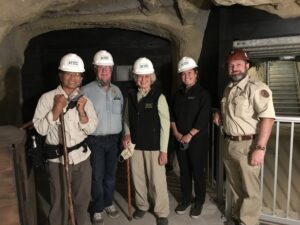
EBRPD Directors, General Manager Sabrina Landreth and Kevin Damstra (right) Supervising Naturalist in charge of the exhibit and park.
Director Beverly Lane and Board president, Dee Rosario were also in attendance for the event.
Antioch Mayor Pro Tem Monica Wilson and Councilwoman Lori Ogorchock, as well as city manager Ron Bernal, and Parks & Rec Commission Chair Marie Arce attended.
Wilson spoke, recognizing “the East Bay Regional Parks District for their commitment to the community” and thanked them for keeping parks open during COVID-19.
“Thank you for sharing our history and stories of our rich heritage,” she added. “I’m really happy this is going to be available to our residents, our youth.”
During her remarks, Pittsburg Councilwoman Shanelle Scales-Preston shared the fact that “Pittsburg was first named Black Diamond because of the coal mines.”
Representatives from Congressman Mark DeSaulnier and Assemblyman Tim Grayson read letters from them and Assemblyman Jim Frazier, congratulating the parks district for the opening of the exhibit.
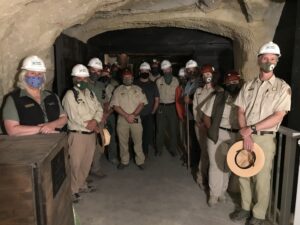
EBRPD staff with former General Manager Bob Doyle (blue shirt, right) at the entrance of the new exhibit.
Former General Manager Bob Doyle spoke about the background of the new exhibit and his own experience in one of the now closed coal mines.
“It was John Waters’ vision. He came up with this idea,” Doyle stated.
According to the display inside the mine, “the Hazel-Atlas Mining Museum and Greathouse Visitor Center are two of the many accomplishments of Waters,” who “began his career with the East Bay Regional Park District in 1968 as a Park Ranger. Later, as Resource Analyst, he designed Black Diamond’s parking lot, picnic areas and water system. John eventually became Black Diamond Park Supervisor, and later served as the Preserve’s first Mine Manager, a position he held until his retirement in 2006.”
“I was privileged in 1977 to actually go into the last open coal mine…in Nortonville,” Doyle shared. “The exhibit has the photos from the actual coal miners. No one had been in there for 110 years. It had the corral for the animals that were used to haul the coal. The middle of the track was worn out from the animals pulling the coal mine.”
“Our gas meters went off and we took as many photos, and got out. That has been permanently closed off. Four boys snuck in and died about four years, later,” he continued. “It’s important we recognize the safety by the parks district and the hard, hard life the early workers had, here.”
“This is an incredibly huge, 6,000-acre park and someday there will be an entrance from the Nortonville side, which was the largest town in the area,” Doyle added
“It’s a history that’s often hidden and one we take great pleasure in sharing with you,” said Kevin Damstra, Supervising Naturalist in charge of both the exhibit and the Black Diamond Mines park.
“The exhibit includes background noise of coal mining including voices of Welsh and Welsh accented English,” he shared. “There were also Irish, Italian and Chinese miners, out here, for a while.”
The coal mining lasted from 1865 to 1908 and then the sand mining from 1920 to 1945,” Damstra shared.

A few photos of the coal miners who were as young as eight years old, coal train and trestle inside the exhibit.
The Black Diamond Mines Hazel Atlas Mine is located at the south end of the Somersville Road in Antioch. The exhibit is open for four tours each Saturday and Sunday beginning tomorrow, May 22. To schedule yours contact the parks district at (510) 544-2750 or Toll Free: 888-EBPARKS (888-327-2757), option 3, extension 4506, or visit www.ebparks.org/parks/black_diamond/. The sand mine will not be open until June. It’s cold inside the mine and wearing something warm is recommended.
Read MoreEnter to win an iPad in the Grand Prize Drawing
By Marie Arce, Member, Advisory Committee, East Bay Regional Parks District
Looking for free summertime recreation and fun for the whole family? Check out 511 Contra Costa’s Summer Bike Challenge. From June through August, riders of all ages can explore their hometowns on two wheels. Simply bike to each destination and cross off the squares as you go. Pick up free prizes on select dates, take weekly Bonus Challenges, and enter the iPad Grand Prize Drawing.
The Summer Bike Challenge is free for people of all ages.
How to Play:
- Register& play for free! You’ll be entered in the iPad Grand Prize drawing.
- Select your city below and download your gameboard.
- Bike to as many squares as you can June-August. Can’t bike to certain Squares? Substitute any square with a bike-able destination of your choice.
- Collect prizes at in-person events, find details on your gamecard.
- Complete Weekly Bike Ride Challenges, sent to your inbox, for chances to win extra prizes every week.
Ready to roll? Visit 511cc.org/go to get started.
Read More
The new Concord Hills Regional Park is directly adjacent to the approved Faria project. Credit: Save Mount Diablo/Google Earth.
Developer’s attorney calls lawsuit “poorly drafted and baseless”; 1,650-home project requires LAFCO annexation approval
Save Mount Diablo issued a statement, Thursday, May 20, 2021 announcing they are suing the developer of the recently approved large housing project on the edge of Pittsburg’s southwest hills that abuts the future regional park on the Concord side of the ridge. The organization claims that Discovery Builders’ Faria project would damage the major ridgeline between east and central Contra Costa County, threaten views from throughout the region, and impact the new regional park.
The Pittsburg City Council voted 5-0 during a special meeting on Feb. 22, 2021 to approve the project, following approval by the city’s planning commission.
On March 30, 2021, Save Mount Diablo filed the lawsuit challenging the City of Pittsburg’s approval of the 1,650-unit Faria project, on the ridgeline between Pittsburg and Concord. According to the agenda item documents, the master plan overlay district encompasses approximately 607 acres of land. The district is generally bounded by Bailey Road and the approved but not yet constructed, “Bailey Estates” subdivision to the east; the Concord City Limits and recently closed Concord Naval Weapons Station (CNWS) property to the south and west; and the San Marco and Vista Del Mar residential subdivisions (substantially developed) along the northern boundary and other open space areas along the northeastern boundary.

Faria SW Hills Master Plan map. Source: City of Pittsburg
“Save Mount Diablo is simply trying to protect one of the East Bay’s most prominent and well-known ridgelines. The Pittsburg City Council approved Seeno-owned Discovery Builders’ Faria project. If we do nothing, massive grading will take place; the project will be built; the ridge damaged; other natural resources, including scenic vistas, will be harmed; and the new regional park, which we advocated for over many years, will be negatively impacted,” said Ted Clement, Executive Director, Save Mount Diablo.
Asked why it took so long for the organization to respond to the project’s approval, Seth Adams, Land Conservation Director for Save Mount Diablo responded, “things take time.” Asked if they had a court date set, yet, he said, “No. We’re at the stage where we have a mandatory settlement conference and where the preparation of the administrative record, which includes all the public comments, etc. That’s what the whole trial is about.”
According to Save Mount Diablo, the Faria project violates Pittsburg’s General Plan, state planning and zoning law, and the California Environmental Quality Act (CEQA). CEQA requires legally adequate environmental review, consideration of appropriate alternatives, and implementation of mitigations to reduce impacts.
Save Mount Diablo’s lawsuit challenges the approval of the Faria project claiming the city council ignored hundreds of letters and public comments that opposed the project.
The Faria site is rugged, landslide prone, and badly suited for development, which will only be possible with massive grading, the environmental organization contends. The project as approved by the city authorizes the development of a major, new residential subdivision on 607 acres of ridgeline and hillside grazing land in what is currently unincorporated Contra Costa County, immediately south of the City of Pittsburg.
The biologically rich site supports sensitive wildlife species and rare plants and is in one of the most visible and most environmentally constrained areas of the county.
The Faria project would change the beautiful green hills forever by annexing the property to the City of Pittsburg and locating 1,650 new residences far from jobs, transit, and services, Save Mount Diablo claims. As a result, rare habitat for special status species would be lost. The extensive grading would increase landslide risks and degrade creeks and streams. Building in the wildland urban interface would create new wildfire risks and strain the City of Pittsburg’s existing firefighting services. Traffic on Bailey Road, San Marco Blvd., and Highway 4 would be made much worse.

The Pittsburg hills where the Faria project has been approved for construction, as seen from the San Marco neighborhood in Pittsburg. Photo: Scott Hein
Save Mount Diablo claims the Faria project would also impact the new Concord Hills Regional Park, which the East Bay Regional Park District (EBRPD) has long planned at the former Concord Naval Weapons Station at the Faria site’s southwestern edge. The Faria project would sit directly above the new park on a ridgeline, degrading views from surrounding areas. It would fragment open space and damage wildlife corridors.
The East Bay Regional Park District adopted the Land Use Plan for the new park last year on July 7, 2020. Discovery Builders and Faria Land Investors filed suit to stop the new regional park.
The Concord Hills Regional Park Land Use Plan provides for public access, preserves 95 percent of the area’s natural habitat, and honors the unique natural and human history of the land.
According to an August 21, 2020 media release by EBRPD: “This approval paved the way for the Park District to begin work on park and trail development of the 2,540-plus-acre regional park at the former Concord Naval Weapons Station and was the product of two decades of community advocacy and partnership amongst the Park District, U.S. Navy, National Park Service, City of Concord, with overwhelming support from the residents of Central Costa County.
“Despite a thorough environmental analysis of the new Regional Park’s plans, which include public access for recreation, permanent preservation of the land as natural habitat, and a joint visitor center with the National Park Services that will also honor the Black sailors who died in the massive Port Chicago explosion, Mr. Seeno’s Discovery Builders and Faria Land Investors filed suit to stop the new regional park. In their lawsuit, Mr. Seeno alleges that the Park, after a decades long collaborative planning efforts to protect and preserve open space, would cause undisclosed impacts on the environment and would impact their planned Faria residential development in Pittsburg on a 606-acre parcel adjacent to the ridgeline of the park,” stated the media release.
By comparison, next door and above the new park, Faria would include hundreds of acres of impacts, Save Mount Diablo claims. The City of Pittsburg prepared an Environmental Impact Report (EIR) that fell far short of CEQA’s requirements. Among other flaws, the EIR lacks adequate analysis of numerous impacts, including biological resources, water supply, wildfire, traffic, and land use. The EIR failed to provide an adequate project description, for example, by omitting information about the location of elements of the planned residential development and about related public services, such as water consumption rates. It also failed to discuss appropriate alternatives. And the mitigation adopted for many impacts is plainly inadequate or ineffective.
Save Mount Diablo is not opposed to all growth. Pittsburg has thousands of housing units already approved but not yet built, including units at Seeno’s San Marco, Sky Ranch II, Montreux, and Tuscany Meadows projects and now including Faria. A smaller or more compact Faria project could easily protect the beautiful ridge, expand the new regional park onto the Pittsburg side, and provide easy public access for Pittsburg residents.
According to Pittsburg’s Current Project Pipeline List, there are currently 5,853 housing units approved or under construction, 88 percent of them by Seeno’s Discovery Builders (5,141 housing units). Those units represent approximately 60,000 new car trips per day that will soon impact local roads and Highway 4, Save Mount Diablo claims.
According to Clement, “Throughout the East Bay, residents have worked hard to protect our ridges and views, and to defend our parks. Pittsburg residents deserve the same protections and quality of life.”
Developer’s Attorney Responds
In response, Discovery Builders’ attorney, Kristina Lawson, Managing Partner of Hanson Bridgett issued the following statement:
“The City of Pittsburg, as the lead agency, and the City’s environmental consultant have performed a comprehensive and extensive analysis of potential impacts of this project. Their work was thorough and well done. Following that analysis, planning and engineering staff at the City recommended approval of this project; the Pittsburg Planning Commission recommended approval of this project; and the City Council voted unanimously to approve this project.
Furthermore, Pittsburg voters approved this land to become part of the City of Pittsburg, and to be developed with much needed housing, consistent with the City’s General Plan which has long provided for this land to be developed for housing.
My client knows that the City Manager, City employees and City-appointed and elected officials all have the best interests of the City in mind and agrees with the many staff recommendations and City approvals for the project. Given the City and their consultant diligently analyzed potential impacts of this project, my client is not concerned with this poorly drafted and baseless lawsuit filed solely for the purpose of delay.”
Allen Payton contributed to this report.
Read More
Following state’s guidelines instead; approve Keller Canyon permit; appoint new County Counsel
By Daniel Borsuk
Seventy percent of Contra Costa residents have received at least one dose of the COVID-19 vaccine, but Contra Costa Health Services Director Anna Roth says that vaccination rate is still insufficient to convince state health officials to change the county current Orange Tier health restrictions to less stringent Blue health restrictions until at least June 15.
“We are accepting the state’s instructions to keep masking guidelines in place,” Roth said at Tuesday’s board of supervisors’ meeting.
Even though COVID-19 vaccines are being administered to children as young as 12 to 15, requirements remain in effect for persons to wear masks while indoor businesses, Roth said.
But CCHS Ambulatory Care Director Dr. Gabriela Diaz Sullivan presented a study’s gloomy findings about how COVID-19 pandemic has severely impacted the state’s health care delivery system.
“Since the outbreak of the pandemic in March 2020, 48,000 more Californians have died,” said Dr. Sullivan, “Heart attacks was the number one cause of death followed by cancer as number two and COVID-19 as number three.”
“Thirty-three percent of Californians had an urgent care need, unrelated to COVID-19, wanted to see a physician, but did not see a physician,” Dr. Sullivan emphasize. She said mammograms, colorectal cancer screenings, diagnostic colonoscopies, and blood pressure procedures were all down.
In summation, the COVID-19 pandemic has eroded the state’s health care system with Californians foregoing medical care when needed in preference to staying home.
On another related matter, Contra Costa Public Health Officer Dr. Chris Farnitano denied Supervisor Candace Andersen’s statement that she has learned 3,500 people have died from taking the COVID-19 vaccine.
“There is no evidence that the COVID-19 vaccine has caused deaths,” Dr. Farnitano said.
Supervisors Approve Keller Canyon Permit
Over the objections of the City of Pittsburg’s Environmental Affairs Manager Laura Wright, who was the only opponent, supervisors unanimously approved a three-year land use permit for Republic Services to continue to operate the Keller Canyon Landfill on Bailey Road.
The supervisors’ action does require the county Department of Conservation and Development to conduct a one-year permit review of the landfill to determine if new or modified conditions should be considered.
Wright objected to the three-year permit renewal because the county did not adequately address the visual impacts by the inadequate number of trees that have been planted to block the view of the landfill and the inadequate measures undertaken to eradicate the dumping of litter outside the landfill.
Initially launching operations in 1995, the landfill has served as either an environmental irritant to residents living nearby the landfill or as a valuable source of money for numerous Pittsburg and Bay Point nonprofit organizations that Supervisor Federal Glover oversees the distributes thousands of dollars from Republic Services’ mitigation fund.
Two years ago, the landfill was the site of public concern when reports surfaced that radioactive waste from the former Hunters Point Naval Shipyard in San Francisco had been transported and deposited at the Contra Costa County landfill. A landfill radiation study last year revealed no evidence that any radioactive material had been deposited at Keller Canyon Landfill.
Tougher Fireworks Ordinance Proposed
Supervisors are expected to consider at the June 8 meeting a proposed ordinance toughening the law banning the possession, manufacture, sale, use and discharge of fireworks.
“The proposed ordinance would amend Chapter 44-2 (i.e., vegetation fires, structure and exterior fires, personal injury or death, and noise or other public nuisances) and authorize the Sheriff to arrest and cite a responsible party, as defined in the ordinance, for violations for Chapter 44-1. The proposed ordinance establishes that a responsible party is required to maintain, manage, and supervise the property or vessel for which they are responsible to prevent violations of Chapter 44-2. A responsible party is liable and violates the probation on fireworks under Chapter44-2 if any person possesses, manufactures, sells, offers to sell, uses, or discharges, any fireworks at the property, or on the vessel, for which the responsible party is responsible, regardless of whether the responsible party is present when the violation occurs.
“The proposed ordinance defines a responsible party as any of the following:
- A person that owns, rents, leases, or otherwise has possession of, or is in immediate control of, aa residence or other private property or a vessel.
- A person that organizes, supervises, sponsors, conducts, allows, controls, or controls access to, the possession, manufacture, sale, offer for sale, use, or discharge of fireworks at a residence or other private property or on a vessel.
If a residence or other private property is rented or leased for a period of more than 30 consecutive days, the landlord or lessor is not a responsible party unless the landlord or lessor: has possession of, or is in immediate control of, the residence or other private property; or has knowledge of the possession, manufacture, sale, offer for sale, use, or discharge of fireworks at the residence or other private property.
The owner of a residence that is rented for a period of 30 consecutive days or less (a short-term rental) is a responsible party and is liable for violations of Chapter 44-2 if the short-term renter, or any other person, possesses, manufactures, sells, uses, or discharges, any fireworks at the residence, regardless of whether the owner of the short-term rental is present when the violation occurs.”
The proposed tougher fireworks ordinance already has won the support from the Discovery Bay Community District which released a letter from district board president stating:
“The revisions, in essence, would hold persons in control or possession of private property responsible for fireworks violations occurring on their property,” wrote board president Byron Gutow. “The discharge of fireworks is a common problem in the district, especially during celebrations of Independence Day and New Year’s. In many cases, the fireworks are professional grade and pose a significant risk of danger to persons and properties. We support efforts to dissuade the use of illegal fireworks.”
Antioch Library Reopening Delayed Until June 8
Citing the need for additional time to install shelving and update computers at the Antioch Library, supervisors approved County Librarian Alison McKee’s request to extend the reopening of the library to Tuesday, June 8.
In late April, supervisors had approved a request to close the library on June Tuesday, June 1 for interior paint and the installation of new carpeting and shelving, but due to additional time needed to install shelving and update computers the reopening has been delayed by a week.
Promote Chief Assistant to County Counsel
Chief Assistant County Counsel Mary Ann McNett Mason was promoted to County Counsel by supervisors to fill the position that became vacant when Contra Costa County Counsel Sharon Anderson died on April 30.
Ms. Mason will earn $463,000 a year of which $105,000 is pension costs. All the costs are budgeted in the county’s General Fund within the County Counsel’s Office operating budget.
Mason, a graduate of the University of California Hastings College of Law, started to work for the county counsel’s office in 1987 as a deputy county counsel. In 2010 she was appointed assistant county counsel and in 2016 was promoted to chief assistant county counsel.
While serving the role of chief assistant county counsel, Mason assumed the duties of the County Counsel in her absence, supervised the attorneys in the General Government Group, and assisted in management of the County Counsel’s Office. In addition to those duties, Mason has served as the county’s retirement and employee benefit counsel, is the office specialist on open meeting and conflict of interest laws and serves as General Counsel to Delta Diablo.
Mason previously served as the counsel to the Contra Costa County Board of Education and County Superintendent of Schools, the Contra Costa Superior Court, the Grand Jury, and the Assessment Appeals Board and other clients.
“I am so happy to have this opportunity to represent the board of supervisors and the county at an important time in our history and to carry on Sharon Anderson’s legacy,” Mason told the Contra Costa Herald. “I have some big shoes to fill.”
Load Limits Imposed on Delta-Mendota Canal Bridge
In an unusual action, supervisors approved the Contra Costa County Department of Public Works request to post 23 ton per vehicle (i.e., Type 3 Truck) load limit signs for the deteriorating Delta-Mendota Canal Bridge on Lindemann Road over the Delta-Mendota Canal because of “on-going deterioration found in multiple timber columns of the bridge.”
Supervisors did not receive any public comment pro or con on the proposal for the bridge’s load limit. “This order shall remain in effect for 90 days, or until Caltrans issues a Director’s Order establishing a permanent load restriction on the bridge, whichever occurs first,” the supervisors’ resolution states.
Alamo Architect Appointed Acting Planning Commissioner
District 2 Supervisor Candace Andersen of Danville received board consent action approval on her request to appoint Alamo architect Sanjiv Bhandari to fill on an acting basis the planning commission post vacated by Rand Swenson’s resignation on April 28.
“Supervisor Andersen has been advertising the District II Commission seat since April 15, 2021 in preparation for filling the vacancy scheduled to arise at the end of Mr. Swenson’s current term on June 30, 2021. Mr. Bhandari applied and met with Supervisor Andersen. Supervisor Andersen feels his knowledge an experience will be a positive addition to the commission,” the board agenda item report states.
Read More
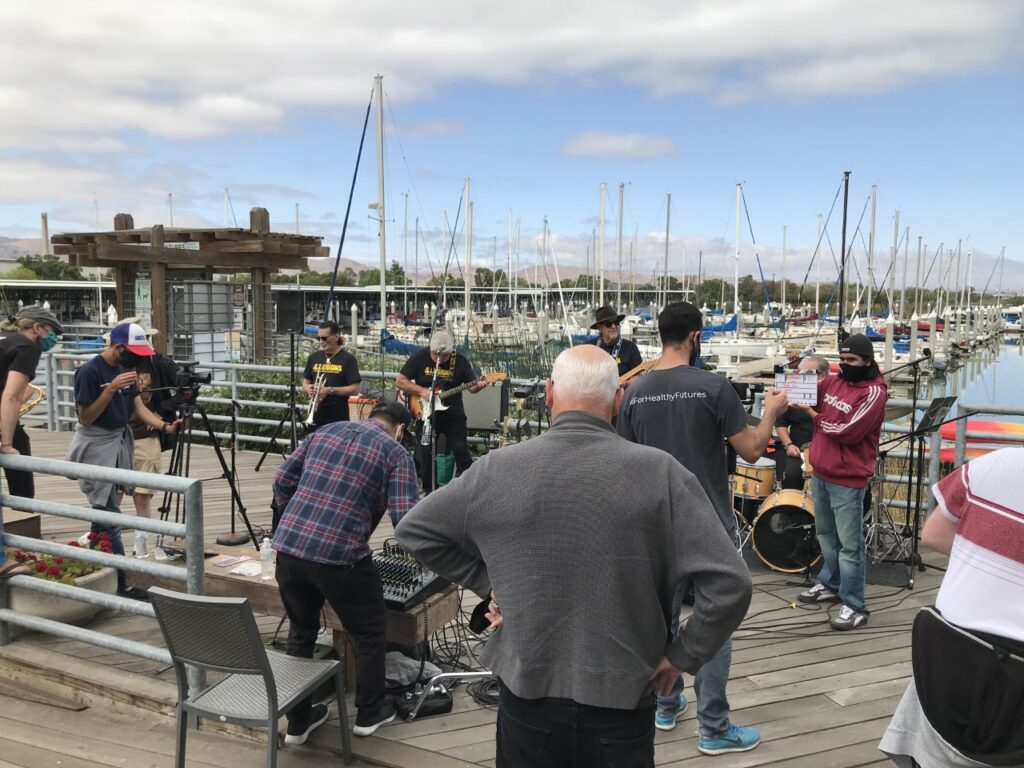
Director Joey Travolta (grey sweater) and his crew film The Illusions band on the deck at Smith’s Landing Seafood Grill in Antioch on Saturday, May 15, 2021.
“Music Heals” for Stand Down on the Delta to be held Sept. 10-13 at Contra Costa Event Park
By Allen Payton
Director and producer Joey Travolta brought one of his unique film crews to Antioch on Saturday, May 15 to shoot a promotional video for this year’s Stand Down on the Delta, the biennial event for veterans. The video, entitled “Music Heals” focuses on the bands that will be playing at this year’s four-day event, Sept. 10-13 at the Contra Costa Event Park (fairgrounds) in Antioch, according to J.R. Wilson, president of both Delta Veterans Group (DVG) and Stand Down on the Delta.
The filming took place on the deck of Smith’s Landing Seafood Restaurant overlooking the Antioch Marina. Owners Randy and Lynn Tei are big supporters of the veterans, sponsoring the Veterans Day and Memorial Day events in Antioch, and the Veteran of the Year, Wilson shared. He was joined by Pat Jeremy, V.P. of DVG and Delta Director of Stand Down, to watch the filming. (See videos here, here, and here)
The music director for the Stand Down, Darlyn Phillips, had the idea for the video and invited Travolta and his crew to shoot it. The older brother of actor John Travolta, who recently moved to San Francisco so he and his wife could be near their daughter and grandson, Jonah who will turn one, next month, agreed.
The Film Crew
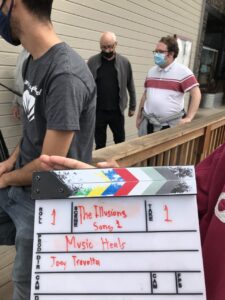
The slate (clapboard) for the first scene, as Joey Travolta and students head to the location to film.
Crews from his Inclusion Films company consist mainly of youth and adults with intellectual and developmental disabilities from his six dedicated production studios throughout California, including Livermore, Stockton and the largest one in Sacramento, as well as Bakersfield, San Bernardino and San Diego.
“He teaches them to be in the film industry and then helps get them jobs,” Phillips shared.
“We bring in a pro camera guy and sound guy in. The rest of the crew are students,” Travolta said. He serves as the director and producer.
“The workshops that we have, seven around the state, Bakersfield was the first in 2008, then Livermore in 2013. We partnered with Futures Explored and we have their students,” Travolta explained. “We also have students from Options for All. We use the pros but always have the students work to hone their craft.”
The crew in Antioch on Saturday was from both Options for All program in San Jose, and Futures Explored programs in Livermore and Sacramento, under the leadership of Film & Media Director, Hester Wagner. It included two professionals from Sacramento, Austin Blank on sound and Michael Thygesen on camera. The other five crew members were students.

The film crew from Inclusion Films and Futures Films prepares to shoot The Illusions band performance.
“They’re funded through the state of California. They’re Regional Center clients,” said Travolta. “Students can be from other places. I have students from San Diego in Bakersfield. We have campers from back east.”
His career in which he started as a singer then actor, includes work as a movie director of 18 films. That and Travolta’s degree and experience teaching in special education brought him to this venture which he started in 2007.
“We offer a twenty-week program at a time. The students take camera, lighting, acting, writing, building sets, everything,” Travolta continued. “While they’re doing that, they develop scripts for a 25-minute film. They break it down, they schedule it and go through the post production process of editing and sound mix.”
“I liken it to the minor leagues of baseball. They cut their teeth and can make their mistakes,” he stated. “They’re getting good, final, solid product and the experience to hone their craft.”
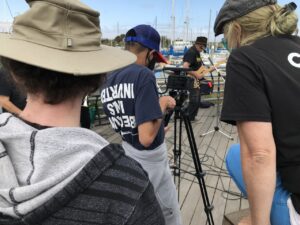
The Inclusion Films and Futures Films crew shoots The Illusions band with the help of Hester Wagner (right).
“We’ll do five or six camps each year,” Travolta added.
“I did a film camp in the Fairfield Vacaville area for the Solano school district about a year ago. Darlyn went to the screening of it and told me about the Stand Down and wanted to do this video,” he said, explaining the connection.
Futures Explored through their Futures Films provides crews for Northern California shoots, while Options for All provides them in both Northern and Southern California.
“Most of my crew is mainly in Bakersfield,” he said. “If you want to do something in Nor Cal or the desert, we have crews.”
While Travolta’s company is for profit, “Futures and Options are non-profits.”
First Feature Film
 “Last year we did our first feature film, Carol of the Bells,” said Travolta. Some known actors are in it, including Diana Mills and Lee Purcell.
“Last year we did our first feature film, Carol of the Bells,” said Travolta. Some known actors are in it, including Diana Mills and Lee Purcell.
“Each of the studios sent two pros and four students who came and stayed for two weeks. We did it through SAG (Screen Actors Guild),” he stated. “I wanted to prove we could do this. 70% of the crews were students.”
That was a world-wide first.
“We won Audience Choice for feature film in San Diego” Travolta continued. (See related article) “Then in Bentonville, Arkansas, it debuted there. The film festival there was started as a women film makers event by Gina Davis. Then they added in disabilities and that’s when I came in.”
“Unfortunately, we released right at the start of COVID,” he said. “We did a documentary (about the film) that played on PBS. So, the word got out there.”
Set during Christmas time, Carol of the Bells is described on the Internet Movie Database (IMDB) as “a young man with a troubled past searches for his biological mother and discovers that she is developmentally disabled.” The movie can be viewed on Amazon Prime. (This reporter watched it Saturday night and gives it a thumbs up. But be sure to have a box of tissues handy!)
“Then also we have Inclusion Networks, a subscription-based company, with all the films we do, all the camps we do, and the funds are used to pay for jobs and development of employment,” Travolta shared. “We put new content on every few weeks.”
The one-of-a-kind channel features TV series, documentaries, short films, and special features created and produced by his film crews. According to the website, with each subscription, a majority of the proceeds will go to the employment of individuals with disabilities, helping provide more jobs in the film industry for those with disabilities.
Asked if his brother John has been part of his venture, Travolta responded, “he is really supportive of us. A friend was doing a film. I sent five of our folks down to Georgia and worked for a month. John ended up being the star of it. He was down there and said, ‘these guys are unbelievable.’”
The Bands
“We’re bringing awareness about music healing,” Phillips said about the promotional video. “In this instance for the Delta Veterans Group’s Stand Down on the Delta, these are some of the bands that perform for the veterans each time.”
“The idea of it is to show how music heals,” she continued. “Many of the band members are veterans. One guy, Tony Archimedes played for 10 hours straight, playing multiple instruments when others couldn’t make it. The band members are from all over the Bay Area and Northern California.”
They say, ‘anything for the veterans,’” Phillips added.
Future Films crew was on site doing the filming Hester Wagner, Director of Film and Media Programs said they partner with Travolta’s company and do the same thing in the Bay Area.
“We interviewed six band members and now we will get them playing,” Travolta said before the start of filming. “This will be a seven- or eight-minute promotional video for the Stand Down and what you’re doing, here. Then hopefully, they’ll have photos from the event that we can cut in.”
The first band to play and be filmed was The Illusions, led by drummer Richard Rivas and included Archimedes on saxophone. The other band members are Billy Thompson on bass, Joe Martinez on trumpet, Mitch McCarrie on the guitar and L.A. Ramirez also on guitar.
They were followed by Gig and Friends, named for Greg “Gig” Edwards, and included drummer Evan Carr (whose son, Austin, plays wide receiver for the New Orleans Saints), bassist Michael Fourie with his unique, upright electric bass, and Archimedes on the keyboard. They performed an original song written for veterans by Edwards and Phillips.
The third and final band to be filmed, Darlyn & The Groove Room, with Phillips as lead singer, performed original songs and included jazz guitarist Steve Krohn and drummer Barry Hutcherson (son of legendary jazz artist Bobby Hutcherson), plus Fourie and Archimedes repeating on bass and keyboard.
“The final video should be ready in a couple weeks,” sound man Blank shared.
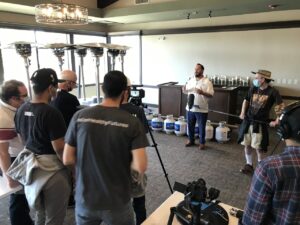
President of both Delta Veterans Group and Stand Down on the Delta, J.R. Wilson is interviewed for the promo video.
The Event
Stand Down on the Delta is held every two years, alternating between Antioch in odd years and the East Bay Stand Down in Pleasanton in even years. This year’s event will be held the weekend of the 20th anniversary of 9-11, event organizer Wilson shared. They serve military veterans, many of whom are homeless, who come and stay, are provided free meals, free medical and dental care, clothing and enjoy the live music throughout the weekend.
“The bands will be playing from 10 am to 10 pm each day,” Phillips added.
The Contra Costa Event Park is located at 1201 W. 10th Street in Antioch.
For more information and to volunteer visit DeltaVeteransGroup.org or the Stand Down on the Delta 2021 Facebook page.
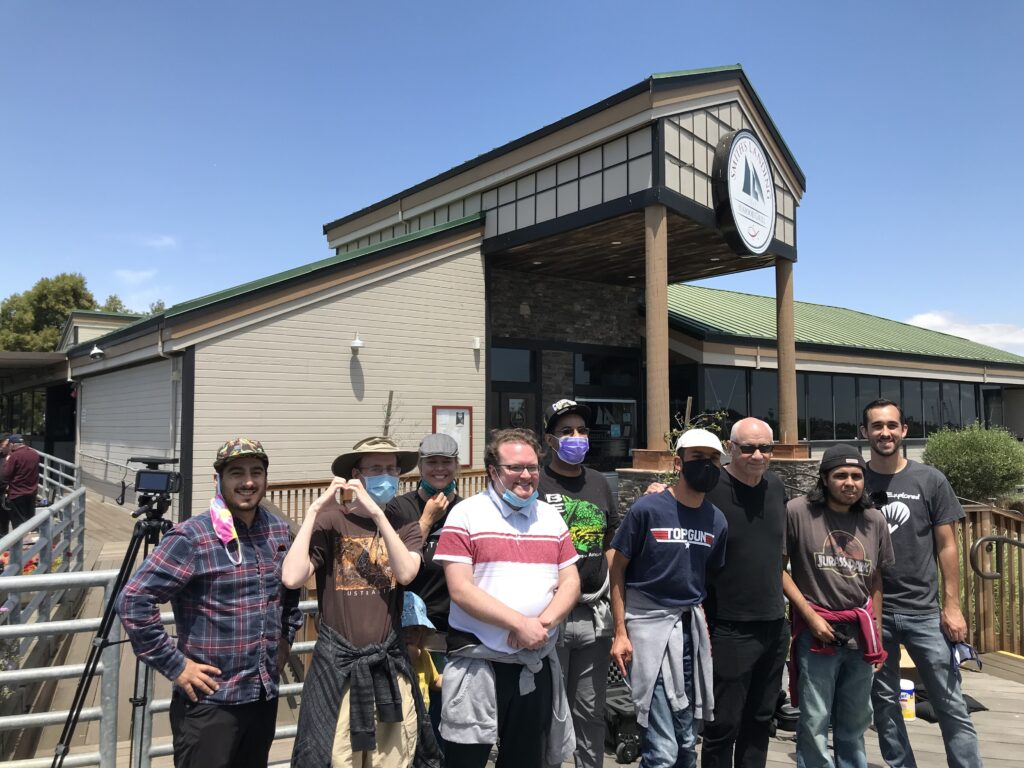
That’s a wrap! The film crew, including (l-r) Austin Blank, Alex Borson, Hester Wagner, Erick Tash, Jabari Daniels, Andrew Kunzel, Joey Travolta, Brandon Dominguez and Michael Thygesen, following the shoot at Smith’s Landing Seafood Grill in Antioch.
Read More
By Jimmy Lee, Director of Public Affairs, Contra Costa County Office of the Sheriff
 In accordance with the Contra Costa County Chiefs of Police Association Officer Involved Fatal Incident Protocol, Sheriff-Coroner David Livingston will hold an inquest into the death of 30-year-old Ezekiel McCoy of El Sobrante. This incident occurred on November 17, 2020 in Contra Costa County. The attempted murder suspect was killed while a county jail inmate during a fight while waiting for results of a COVID-19 test. (See related article)
In accordance with the Contra Costa County Chiefs of Police Association Officer Involved Fatal Incident Protocol, Sheriff-Coroner David Livingston will hold an inquest into the death of 30-year-old Ezekiel McCoy of El Sobrante. This incident occurred on November 17, 2020 in Contra Costa County. The attempted murder suspect was killed while a county jail inmate during a fight while waiting for results of a COVID-19 test. (See related article)
That same day there will also be an inquest into the death 31-year-old Kentreal Irving of Concord. This incident occurred on October 7, 2020 in Contra Costa County. Irving jumped to his death off Hwy 242 overpass while fleeing Sheriff’s Deputies. (See related article)
Both proceedings will convene on May 28, 2021 at 8:30 AM at the Wakefield Taylor Courthouse, 725 Court Street, Department 23, Room 200, Martinez, California. The inquest for McCoy will take place in the morning, while the one for Irving will happen in the afternoon.
The purpose of the inquest, which Sheriff-Coroner Livingston convenes in fatal incidents involving peace officers, is to present the facts of the incident to a jury for their deliberation and finding on the manner of death.
The inquest is open to the public and members of the media are invited to attend. However, no photographs or video and audio recordings may be taken during the proceedings.
The inquest will be held in-person. Face coverings are mandatory at the proceedings and state mandated social distancing guidelines will be followed.
Allen Payton contributed to this report.
Read MoreWould transfer tax revenue to county, eliminate Antioch mayor’s executive director job
 On Monday, May 10, 2021, Assemblymember Jim Frazier’s (D-Fairfield) bill, AB 903, to dissolve the Los Medanos Community Healthcare District, unanimously passed the Assembly floor on a 70-0 vote. The district serves Pittsburg and Bay Point.
On Monday, May 10, 2021, Assemblymember Jim Frazier’s (D-Fairfield) bill, AB 903, to dissolve the Los Medanos Community Healthcare District, unanimously passed the Assembly floor on a 70-0 vote. The district serves Pittsburg and Bay Point.
AB 903 will require Contra Costa County to be the successor of all rights and responsibilities of the district. AB 903 will also require the county to complete a property tax transfer process to ensure the transfer of the district’s health-related ad valorem property tax revenues to the county in order to operate the Los Medanos Area Health Plan Grant Program.
The Los Medanos Hospital closed in 1994 but the district, covering Pittsburg and Bay Point, has continued to exist, collecting property taxes and using the funds to pay for staff and provide grants to local organizations, direct service programs including a community garden and district sponsored programs including REading ADvantage for early literacy. The district’s 2020-21 Fiscal Year budget projected $1.13 million in tax revenue and $1.3 million in expenses.
“This bill effectively creates hundreds of thousands of dollars in funding for badly needed healthcare services in the region. A lot of this funding comes from the savings on LMCHD’s extremely high administrative expenses, which topped 60% in some years,” said Frazier.
The Contra Costa Local Agency Formation Commission (LAFCO) has approved of the dissolution of the existing healthcare district, and Contra Costa County already serves the communities within district boundaries.
“The COVID-19 pandemic has exposed critical shortfalls in healthcare and health services funding across the state. Communities of color have been especially impacted by the emergency,” said Frazier. “Now more than ever, we have seen the life-changing impacts of devoting every possible dollar to serving those we represent. AB 903 effectively creates hundreds of thousands of dollars in funding for badly needed healthcare services in the region.”
“Comparable programs in the county average at about 15% admin cost, and rather than lose over half the funding to wasteful administrative expenses, AB 903 dedicates those dollars to the community,” Frazier added.
Part of the administrative expenses includes Antioch Mayor Lamar Thorpe’s executive director position which included an annual salary of $96,000 when he was hired in 2019, plus merit-based salary increases, according to the minutes of the Dec. 16, 2019 LMCHD Board meeting. He is also provided one hour of paid personal leave time for every 30 hours worked. When reached, previously about having his position eliminated if the bill is signed into law, Thorpe said he could find another job.
Previously, LMCHD Board President Patt Young challenged Frazier and his legislation, claiming he doesn’t represent but a portion of the healthcare district and that he is “taking political orders from your top political advisor in an effort to turn our district into a political slush fund for one of your top allies on the Contra Costa County Board of Supervisors.” (See related article)
However, Assemblymember Tim Grayson, whose district includes most of the healthcare district, is the Principal couthor of the bill.
The bill requires passage by the State Senate and signing by the governor before it becomes law.
Allen Payton contributed to this report.
Read MoreBalance budget based on keeping 879 positions unfilled
By Daniel Borsuk
The Contra Costa County Board of Supervisors voted 5-0 on Tuesday to approve a $4.06 billion 2021-22 budget that increases staffing especially for public health, the sheriff-coroner and district attorney. It’s an increase of $80 million from the 2020-21 fiscal year budget of $3.98 billion.
During the 2021-22 fiscal year, county officials expect to spend $1.78 billion in local general funds and yet to be determined amount of Measure X sales tax funds that voters approved last November.
Supervisors learned President Biden’s American Rescue Plan will bring to Contra Costa County’s coffers $233 million over the next 24 months of which the first $116.5 million installment will be delivered later this month.
In addition, County Administrator Monica Nino said by keeping 879 positions unfilled the action will save the county $115 million and allows the county to achieve a balanced budget. Nino cut one position from her staff, a person who was assigned to census outreach and activities, a position that is no longer needed since the census has been completed.
Among other staffing reductions or additions, three vacant positions in the Assessor’s Office will be eliminated, but the District Attorney’s Office will pick up one new position, a District Attorney Senior Inspector for Real Estate Fraud and Prosecution.
Twenty-five unfilled Employment and Human Services positions will be eliminated in Child Welfare and Community Services, but the Sheriff-Coroner can hire 10 deputies to be assigned to acute psychiatric and mental health in detention services.
Next fiscal year, 39 new mental health workers will be hired in Health Service’s to beef up the Mental Health Community Support Unit to enhance conservatorship and guardianship issues.
Public Comments, Complaints
Supervisors once again got an earful of complaints from citizens that supervisors still plan to fund Sheriff-Coroner David Livingston’s request to hire 10 deputies to be assigned to mental wards at the Martinez jail and Richmond detention center.
Speakers, including the mother of Miles Hall, who was killed by a police officer in Walnut Creek, requested supervisors not approve Sheriff-Coroner Livingston’s staffing request but to consider donating the funds to the non-profit Miles Hall Foundation.
Dan Geiger of the Budget Coalition objected to the request from the Sheriff-Coroner to hire 10 deputies because Sheriff-Coroner Livingston will have hired 24 new deputies over a two-year span. “If the Sheriff needs 10 more sheriff deputies, he needs to find the money elsewhere in the budget,” Geiger said.
District 1 Supervisor John Gioia of Richmond responded to the sheriff-coroner’s critics by saying the county is bond by the Prison Law Office settlement to spend $250 million over 5 years to improve jail conditions for prisoners requiring mental health services.
“The reason why 10 deputies are being hired is due to the settlement to improve jail conditions and to comply with the Prison Law Office settlement,” Gioia said.
During the upcoming 2021-2022 fiscal year, Supervisor Gioia requested county officials provide reports on the potential closures of the Marsh Creek Detention Facility that houses 28 inmates and is staffed with 15 sworn and five non-sworn Sheriff’s Office employees, and on the future of juvenile hall.
Countywide Curb Ramp Project Contract Awarded to Second Lowest Bidder
Instead of approving the lowest bid, supervisors approved the second lowest bid of $1,172,074 from Sposeto Engineering Inc. when the lowest bidder, Burch Engineering & Construction, Inc. had given timely written notice to the county of a “mistake made in the filing of Burch’s bid and that it be relieved of the bid.”
Supervisors unanimously approved the Sposeto Engineering bid for the countywide curb ramp project. Burch Engineering & Construction Inc. had submitted a bid of $875,954 for the curb ramp project before alerting the county about an error in its bid.
Three other bids that were submitted for the project were Kerox Engineering Inc., $1,390,408; J.J.R. Construction Inc., $1,398,702; and FBD Vanguard Construction, Inc., $1,406,522.
Pay Respects to County Counsel Anderson and former Public Works Director Shiu
Supervisors paused to pay respects to two county employees, county counsel Sharon Anderson, who passed away on April 28 and former county Public Works Department Director Maurice Shiu, 74, who passed away recently from Stage IV Pancreatic Cancer.
Shiu, who was born in Guangzhog, China on Dec. 6, 1946, but moved with his parents to Hong Kong where upon graduation from high school moved to the United States to attend the University of California at Berkeley where he received Bachelor’s of Science and Masters of Science degrees in Civil Engineering. He met his wife Esther at UC Berkley.
During his distinguished career at Public Works, Shiu’s major accomplishments included the Willow Pass Grade Project and the State Route 4 Bypass Project. He was president of the Contra Costa County Engineers Association.
Shiu retired in 2008. He is survived by his wife Ester, two children – Perkin and Vanessa and his four grandchildren – Jaden, Justin, Noelle and Gabriella.
“It’s a loss to our county and our department,” said current Public Works Department Director Brian Balbas. “Maurice was very tactful and active in transportation. He was very good at preparing me for the challenges that I face as Public Works Director.”
“He worked on the Highway 4 widening,” said District 5 Supervisor Federal Glover. “He was so brilliant on that project. He was very helpful with me and he had a great sense of humor.”
For the past 37 years Sharon Anderson, a resident of Benicia and a graduate from the University of the Pacific’s McGeorge School of Law, has been known as a dedicated and hardworking lawyer for the county. She died on April 30. The cause of death was not released.
“She was such a wonderful person,” said District 4 Supervisor Karen Mitchoff.
Upon recognizing Anderson’s leadership and mentoring skills District 5 Supervisor Glover said the county is in great shape legally and with its successor, most likely Assistant County Counsel Mary Ann Mason.
“Sharon was so well-grounded. What I loved about Sharon was that she did not take herself so seriously,” said District 2 Supervisor Candace Andersen of Danville. “I am grateful we have Mary Ann Mason.”
Read More






